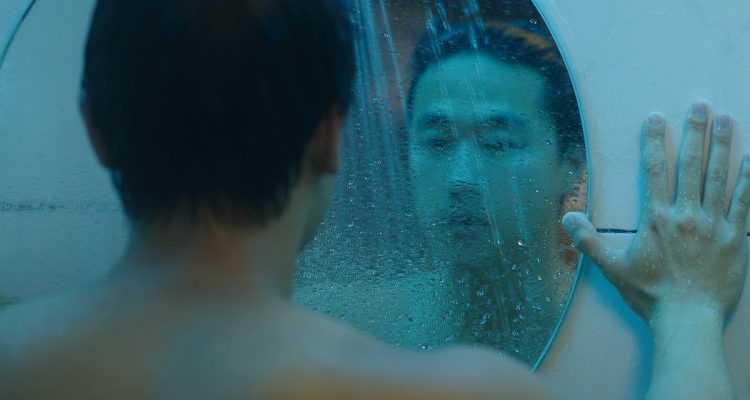There is a functionality to the coming of age story that makes it difficult for films to break from the mold that has settled so well in the cinematic zeitgeist. The audience has come to expect certain moments and experiences; the outsider looking in, getting their (most likely, his) moment to shine and prove himself, meeting a bump in the road that derails their/his path and then, by the end, realizing that it’s what makes them different that makes them special. It’s familiar, and it’s easy to telegraph just what is going to happen and when, but it works, and each and every time we find it difficult not to be swept away in the story because it’s a shared experience. Everyone has had the awkward moment of trying to tell someone they liked them, dealing with overbearing parents or expectations of life post high-school that seemed a little too out of reach.
READ MORE: The 50 Most Anticipated Films Of Fall 2016
Andrew Ahn’s “Spa Night” manages to both subvert expectations and doggedly stick to them as he takes the blueprint of a coming of age story spins it from the point of view of a young Korean-American man dealing with his burgeoning sexuality, conflicted feelings of embracing who he is, and living up to his family expectations. Managing to track the emotions, shooting everything from a clinical point of view, “Spa Night” is beautifully executed, and marks an impressive debut from Ahn.
David Cho (played by newcomer Joe Seo) is an aimless 18 year-old who is dealing with external and internal pressure about what he should do for his future. His parents Jin (Youn Ho Cho) and Soyoung (Haerry Kim) are struggling to make ends meet, with Jin having to battle his own ego to stay afloat while Soyoung works tirelessly to make sure David is given proper schooling to ensure his enrollment in a good college. One day, while fighting to repress his developing sexuality, David comes across an all male spa which becomes an ample spot for cruising. Using this as a reprieve from the stresses of everyday life, his actions threaten to catch up with him as his parents strenuous relationship pulls at the trio’s familial bond.
“Spa Night” is powerful in its silence and in the moments that the film doesn’t choose to elaborate on. Nothing is tied up perfectly, and all three of our leads are left suspended in moments of uncertainty, either unhappy with where life has led them or looking for a way out. It’s often so quiet that it has a tendency to feel a tad sparse, as if the film was stretched too thin over it’s running time, feeling the need to fill space for the sake of bulk rather than because the story dictated it. Ahn both wrote and directed the film, and as skillfully composed as it is, there might have been more to mine in a movie more comfortable with dialogue. For all of its storytelling intricacies, “Spa Night” would have benefited greatly from an editor who was happy to shave off scenes that went on too long.
Boldly atmospheric, Ahn and cinematographer Ki Jin Kim understand the space in a frame to aid in the visual storytelling. From the use of reflections and the cool, icy blue coloring of the spa itself, there’s a thematic nod to the isolation that David is feeling, both from his peers who seem to have life figured out and his parents who are unraveling, holding onto his future as a tether.
All three leads give moving performances, Seo in particular who’s silent stoicism for the majority of the film could have caused a disconnect from character and viewer but instead it only allows for those emotional cataclysms to land all the harder, striking a visceral timber when he reaches his breaking point.
A Special Jury Prize winner at this year’s Sundance, there’s an immense amount of promise on display in Ahn’s film, from the performances and the direction, to the more technical elements. There’s nuance in the script at the interplay between characters, beyond the familial. The interactions between acquaintances who make flippant comments about jobs and colleges speak volumes of what David and his family are fighting to achieve. “Spa Night” breaks past its genre confines because the film’s theme about identity, be it that of a child of immigrants, a young man grappling with his sexuality or dealing with his parents instability, doesn’t get conclusively wrapped up. The implication is that there are new beginnings and endings at all walks of life and while David may not be achieving his happy ending yet or moment of personal clarity, he has his next step and that may lead him in the right direction. [B]

